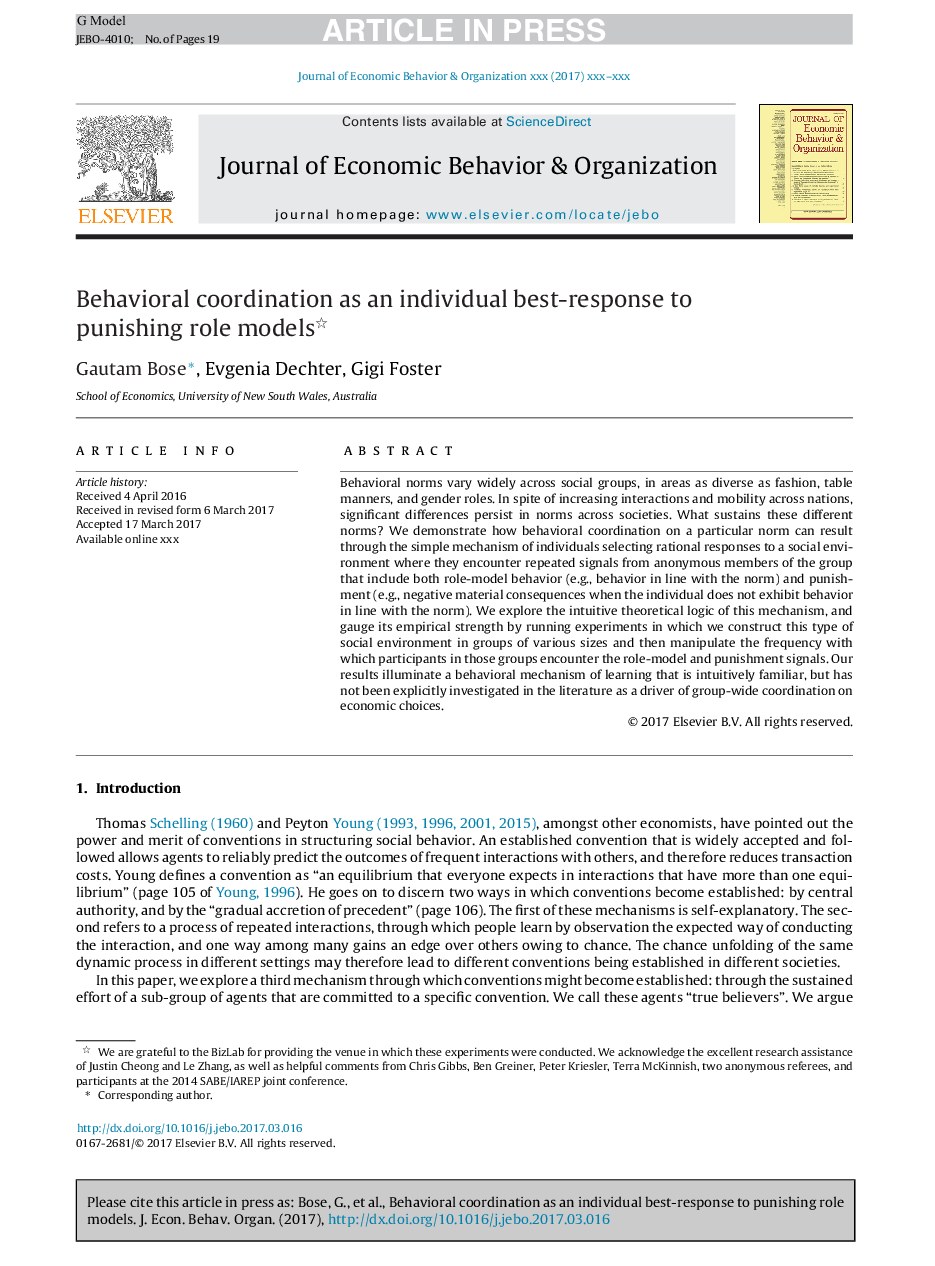ترجمه فارسی عنوان مقاله
هماهنگی رفتاری به مثابه بهترین پاسخ فرد به مجازات مدل های نقش
عنوان انگلیسی
Behavioral coordination as an individual best-response to punishing role models
| کد مقاله | سال انتشار | تعداد صفحات مقاله انگلیسی |
|---|---|---|
| 142259 | 2017 | 19 صفحه PDF |
منبع

Publisher : Elsevier - Science Direct (الزویر - ساینس دایرکت)
Journal : Journal of Economic Behavior & Organization, Available online 20 April 2017
ترجمه چکیده
هنجارهای رفتاری به طور گسترده ای در میان گروه های اجتماعی متفاوت است، در مناطقی که متنوع هستند مانند مد، رویه های جدول و نقش های جنسیتی. به رغم افزایش تعاملات و تحرک در سراسر کشورها، تفاوت های قابل توجهی در هنجارها در جوامع وجود دارد. چه چیزی این هنجارهای مختلف را حفظ می کند؟ ما نشان می دهیم که چگونه هماهنگی رفتاری در یک حقیقت خاص می تواند از طریق مکانیسم ساده ای از افرادی که پاسخ های منطقی به یک محیط اجتماعی را انتخاب می کنند، جایی که آنها سیگنال های تکراری از اعضای ناشناس گروه را شامل می شوند که شامل رفتار رفتار مدل (مثلا رفتار در راستای هنجار) و مجازات (به عنوان مثال، پیامدهای منفی مادی زمانی که فرد رفتار را مطابق با هنجار نشان نمی دهد). ما منطق نظری بصری این مکانیسم را کشف می کنیم و آزمایش تجربی آن را محاسبه می کنیم که در آن ما این نوع محیط اجتماعی را در گروه های مختلف اندازه گیری می کنیم و سپس فرکانس را با آنچه که در آن گروه ها با مدل نقش و مجازات مواجه می شوند، سیگنال ها نتایج ما یک مکانیسم رفتاری یادگیری را نشان می دهد که به صورت بصری آشنایی دارد، اما در ادبیات به روشنی به عنوان راننده هماهنگی گروهی در انتخاب های اقتصادی مورد بررسی قرار نگرفته است.

